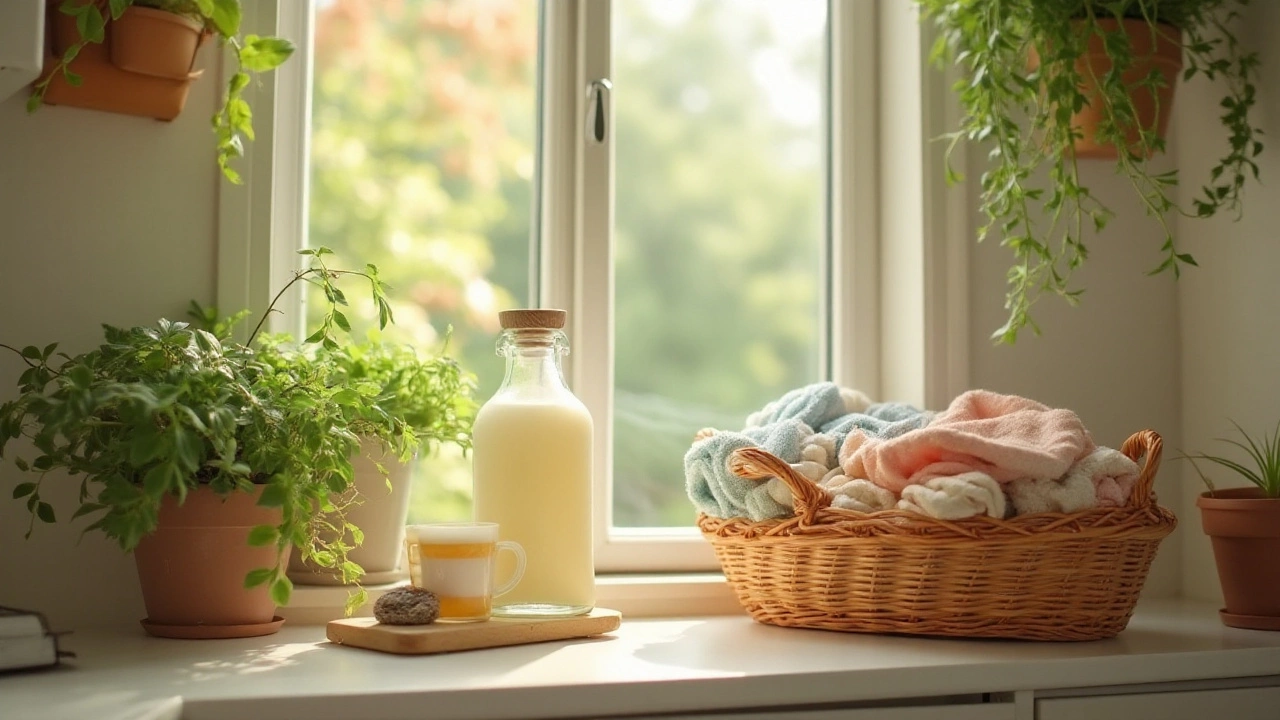Natural Cleaning Tips: Simple, Eco‑Friendly Ways to Keep Your Home Fresh
Want a clean house without nasty chemicals? You already have most of the tools you need in the kitchen pantry. Baking soda, white vinegar, lemon juice and a bit of water can tackle grime in the kitchen, bathroom, bedroom and even the car. Below are the basics, plus a few quick recipes you can start using today.
Everyday Natural Cleaners You Already Have
Baking soda is a gentle abrasive that lifts stains and neutralises odors. Sprinkle it on carpets, let it sit for 15 minutes, then vacuum for a fresh rug. It works just as well on a mattress – sprinkle, wait, and brush off to help with pee smells or night sweats.
White vinegar is acidic enough to cut grease but safe on most surfaces. Mix one part vinegar with two parts water in a spray bottle for a kitchen counter cleaner. It also dissolves mineral deposits on glass oven doors and window panes, leaving them streak‑free.
Lemon juice adds a pleasant scent and extra acidity. Use it to brighten dull brass handles or to lift rust stains from steel sinks. A half‑cup of lemon juice in the dishwasher rinse cycle helps prevent water spots.
Hydrogen peroxide (3%) is a mild bleach that kills mold and disinfects. Combine it with a splash of vinegar for a bathroom grout cleaner, or spray it on fabric stains before washing.
DIY Recipes & Safe Practices
Here are three go‑to mixes you can store in reusable bottles. Label them, and keep them out of reach of kids and pets.
All‑Purpose Spray: 1 cup water, 1 cup white vinegar, a few drops of dish soap. Shake well and spray countertops, appliance exteriors and bathroom tiles. Wipe with a clean cloth.
Oven Door Glass Cleaner: 2 tbsp baking soda, 1 cup warm water, 1 tsp vinegar. Make a paste, spread on the glass, let sit 10 minutes, then scrub gently with a non‑abrasive pad. Rinse with a damp cloth.
Window Shine Solution: 1/2 cup vinegar, 1/2 cup rubbing alcohol, 1 cup water, a drop of dish soap. Spray on windows, wipe with a microfiber cloth in a ‘Z’ pattern for a streak‑free finish.
When you use these mixes, always test a small hidden area first. Some marble or natural stone can react badly to acid, so stick to glass, tiled surfaces and sealed countertops.
Natural cleaning isn’t just about the ingredients – it’s also about the method. Use soft cloths or microfiber towels rather than rough sponges that can scratch. Let cleaners sit for a minute or two; this gives the chemistry time to break down grime before you scrub.
In addition to daily upkeep, a deeper seasonal clean can boost the health of your home. A spring‑time sweep with baking soda on carpets, followed by vacuuming, lifts dust and allergens. Pair that with a thorough wipe‑down of kitchen appliances using the vinegar spray, and you’ll notice fresher air and fewer odors.
Finally, remember that natural doesn’t mean “no care needed.” Store your homemade cleaners in cool, dark places to keep them effective, and discard any mixture that develops an off‑smell. With these simple habits, you’ll keep every room looking great while protecting the planet and your family’s health.

Eco-friendly Laundry Tips: The Power of White Vinegar
Adding white vinegar to your laundry can be a game changer for those looking to embrace eco-friendly cleaning practices. This natural household staple not only helps remove stubborn stains and odors but also softens clothes without the use of harsh chemicals. White vinegar can brighten and preserve your garment colors, making it an affordable and non-toxic alternative to commercial fabric softeners. In this article, you'll discover how white vinegar can transform your laundry routine and learn simple tips on how to use it effectively in your washing machine.
Read More